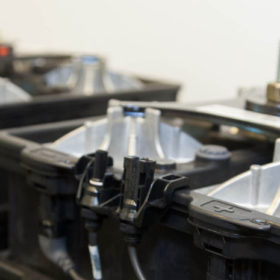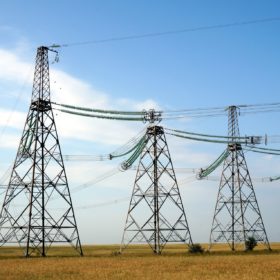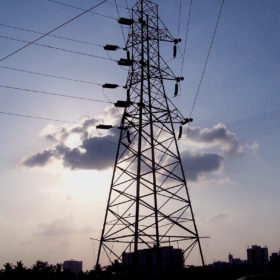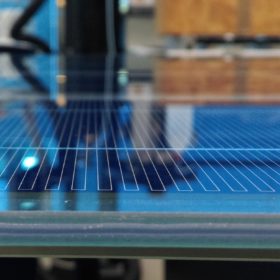MNRE issues guidelines for solar storage batteries to meet quality standards
Rules on the composition of product containers, production line sample sizes for testing and technical information will come into force for manufacturers and distributors operating across the nation.
DGTR investigates claim of dumped coated steel products from China, Korea and Vietnam
In the latest tariff spat to afflict the solar world, the Directorate General of Trade Remedies will investigate a claim steel products coated with aluminum and zinc are being dumped by Far Eastern manufacturers.
Solar module supply: CSUN refutes contract breach claims, says it’s an economic dispute
“This case is an economic dispute arising from complicated domestic and foreign situations such as India’s 25% security tax and China’s ‘May 31’ Policy. It is not our company’s unilateral breach of contracts. Any economic disputes arising from commercial activities shall be handled by the court and relevant judicial institutions,” said the Chinese PV module supplier a week after India’s Ministry of New and Renewable Energy (MNRE) issued advisory against procuring solar modules from CSUN.
Market-based economic dispatch, a structural change with mixed outcomes: India Ratings
Market-based scheduling will enable flexibility in grids to facilitate renewable energy generation. However, the framework proposed by Central Electricity Regulatory Commission (CERC) doesn’t indicate any change in the payments mechanism for renewable projects, says the ratings agency.
State can’t curtail solar power at convenience, says Tamil Nadu electricity regulator
Following a petition by National Solar Energy Federation of India (NSEFI), Tamil Nadu Electricity Regulatory Commission (TNERC) stated that the State Load Dispatch Centre (SLDC) cannot curtail renewable power at convenience.
Will India’s RE push kill the critically endangered great Indian bustard?
Amid the hubbub surrounding India’s renewable energy ambitions, few people have likely heard the last wails of a critically endangered great Indian bustard as it chars to death on a power transmission line or fatally collides with a wind turbine.
India slaps anti-dumping duty on solar EVA sheets
The Directorate General of Foreign Trade (DGTR) has concluded that the imposition of a duty, in the range of $537-1,559/metric ton, is required to offset the injury caused by imports of solar ethylene vinyl acetate (EVA) sheets from China, Malaysia, Saudi Arabia and Thailand. The harshest penalty—$1,559/metric ton (MT)—has been imposed on sheets supplied from any Saudi manufacturer other than Saudi Specialized Products.
Module contract disputes: India seeks China action on CSUN and CEEG
India’s Ministry of External Affairs is approaching Chinese authorities, demanding CSUN Trading and CEEG Solar Science to meet the contractual obligations to the Indian companies and also to honour the arbitration award. Further, it has cautioned Indian stakeholders against procuring PV modules from these high-risk companies that have over 160 court cases against them—mostly for breach of contract.
CERC notifies transmission charge waiver conditions
To avail the waiver, the solar or wind project capacity should have been awarded through competitive bidding and commissioned between February 13, 2018 and March 31, 2022.
China’s CSUN faces India ban over PV module contract disputes
The Indian government is considering the step following complaints about China Sunergy defaulting on PV module supplies to solar project developers Acme Solar, RattanIndia and Refex Energy. Notably, last year a German EPC company Goldbeck Solar had a similar experience with the Chinese supplier.













